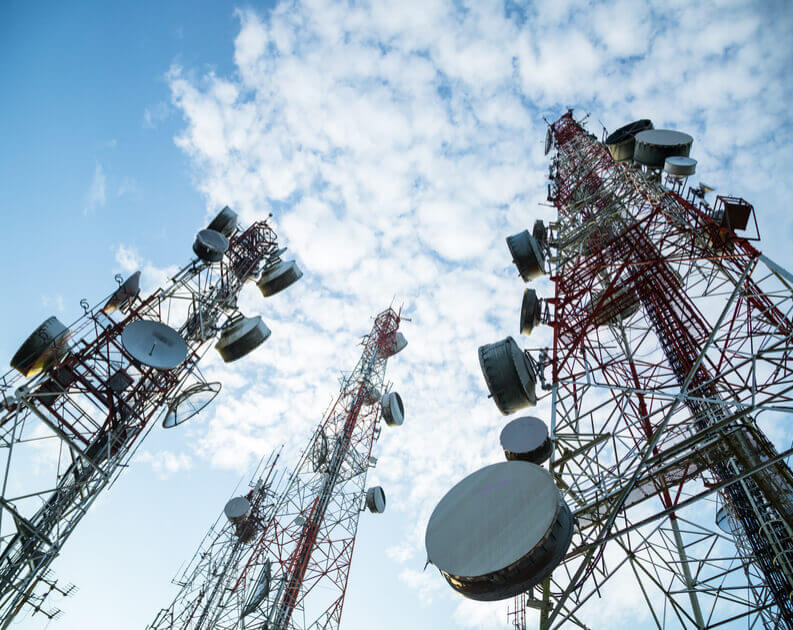The government is expected to rationalize telecom taxes in the coming budget (2020-2021) and amend the Pakistan Telecom Authority’s (PTA) budget proposals to harmonize Service Sales Tax (SST) 19.5 percent and Federal Excise Duty (FED) 17 percent on telecom services into one lower SST / FED rate for all provinces and federal capital.
In this regard, PTA has issued budget proposals from the Ministry of Finance for 2020-2021.
Many major PTA budget proposals included tax concessions for the optical fiber cable (OFC) manufacturing sector, removal of 12.5% withholding tax pursuant to Section 236 of the Income Tax Ordinance 2001 for telephone and internet users, and the abolition of regulatory duties (5 to 20%) and tariff concessions on imports of equipment such as base stations, co-axial cable, and other co-axis.
According to the PTA budget proposals, SST on telecom services currently stands at 19.5 percent in the Punjab, KP, Balochistan, and Sindh provinces, and FED is paid at 17 percent from all consumers in the federal capital.
Therefore, as this tax is collected on use, the consumption is expected to increase with a decrease in its pace, and so will the tax collection. The PTA has suggested a country-wide harmonization of the SST / FED which is one rate for all provinces and the federal capital.
Similarly, the average (17 to 19.5 percent) can also be lowered and put on a par with the rest of the economy.
Additionally, SST is a regional subject in which all provinces and federal capital levy and collect SST from all operators through their respective tax authorities.
For the operators, this procedure is rather tedious/confusing because most of the PTA’s licenses are issued on a national basis, and they offer services accordingly. It is therefore suggested that only the federal capital, through the FBR, the collect and disburse the SST to the provinces on its own, as per their share.
Furthermore, all four provinces charge the SST at 19.5 percent from all broadband users, which is a hindrance to this sector’s growth.
Currently, withholding tax on telephone and internet users under Section 236 of the Income Tax Ordinance 2001 is 12.5 percent, which is an advance tax and is collected from all consumers regardless of their income tax liability.
Because most telecom consumers are not liable to pay income tax, it is therefore suggested to remove the withholding tax.
Broadband proliferation is at the top of the current government’s agenda, but withholding tax at a rate of 12.5 percent, especially on broadband services, is the main impediment to its growth, so it is recommended that withholding tax on broadband, in particular, be abolished.
For telecom operators, the income tax withheld on the importation of equipment must be made flexible as equipment is manufactured for own use rather than for resale.
The rationalization and simplification of withholding taxes can be achieved in the forthcoming budget for retaining agents through a robust “IRIS” under which taxpayers should be given the visibility of the tax deduction certificate, the PTA recommended.
The PTA recommended to the Ministry of Finance that Pakistan’s telecommunications sector be one of the major contributors to the national economy in terms of taxes and jobs, particularly in services.
In 2018 alone, the sector contributed over Rs. 143 billion in terms of taxes, duties, and levies, while overall taxes and levies collection from the telecommunications sector in the last five years exceeded Rs. 687 billion, including the collections from the PTA.
This business, however, finds itself heavily burdened with taxation, and considers this to be an obstacle to harnessing its growth potential.
The regional comparison also shows Pakistan’s telecommunications sector is among the region’s highest-taxed industry.
In view of this, the PTA recommends tax rationalization in the telecommunications sector, which would have a positive effect on the use of telecommunications services, leading to a rise in tax collection due to net growth in this market.
Telecommunications companies in Pakistan are heavily dependent on foreign imports of plant and machinery or technical services.
However, the tax rates given in the ordinance read with tax treaties for non-residents are very high, which raises foreign suppliers’ costs as they are not entitled to take advantage of international tax credits.
This increased cost is then passed on to the Pakistani importers, thereby unnecessarily raising the cost of doing business. Since it is difficult to amend more than 60 double tax treaties, which may also be beyond the scope of the FBR; it is proposed that the tax rates for non-residents provided in the 2001 Income Tax Ordinance be reduced.
The reduction in withholding tax on royalty and other payments and fees for technical services, in particular, will be reduced from 15 percent and 20 percent to 10 percent.
The PTA data showed that the telecommunications sector in Pakistan is one of the major tax contributors in the national exchequer and a large share of telecom taxes in the services sector. The telecoms industry contributed more than Rs. 95.8 billion to the national exchequer in FY2019.
PTA deposits jumped from Rs. 10.1 billion to Rs. 17.4 billion from the 2017-2018 fiscal year to the 2018-2019 financial year. In FY 2018-2019, telecom revenue increased by 12.9 percent with total revenues at Rs. 552 billion.
In the last quarter of 2019, only the renewal of three cellular mobile licenses due in 2019 brought $688 million to the national exchequer, which is 50 percent of the overall license fee.
“We assume, however, that the telecommunications sector is a highly taxed economy sector where tax rates have always been held higher than the rest of the sectors, which is becoming a major obstacle to achieving our Digital Pakistan Telecom Policy 2015 objectives.
If taxes can be rationalized in its favor, then a well-performing and the vibrant sector will potentially do even better. This will not only promote further growth but also contribute to improved tax collection due to increased usage. “Tax rationalization plans for the next budget have also been drawn up,” recommended the PTA.






















Leave a Reply